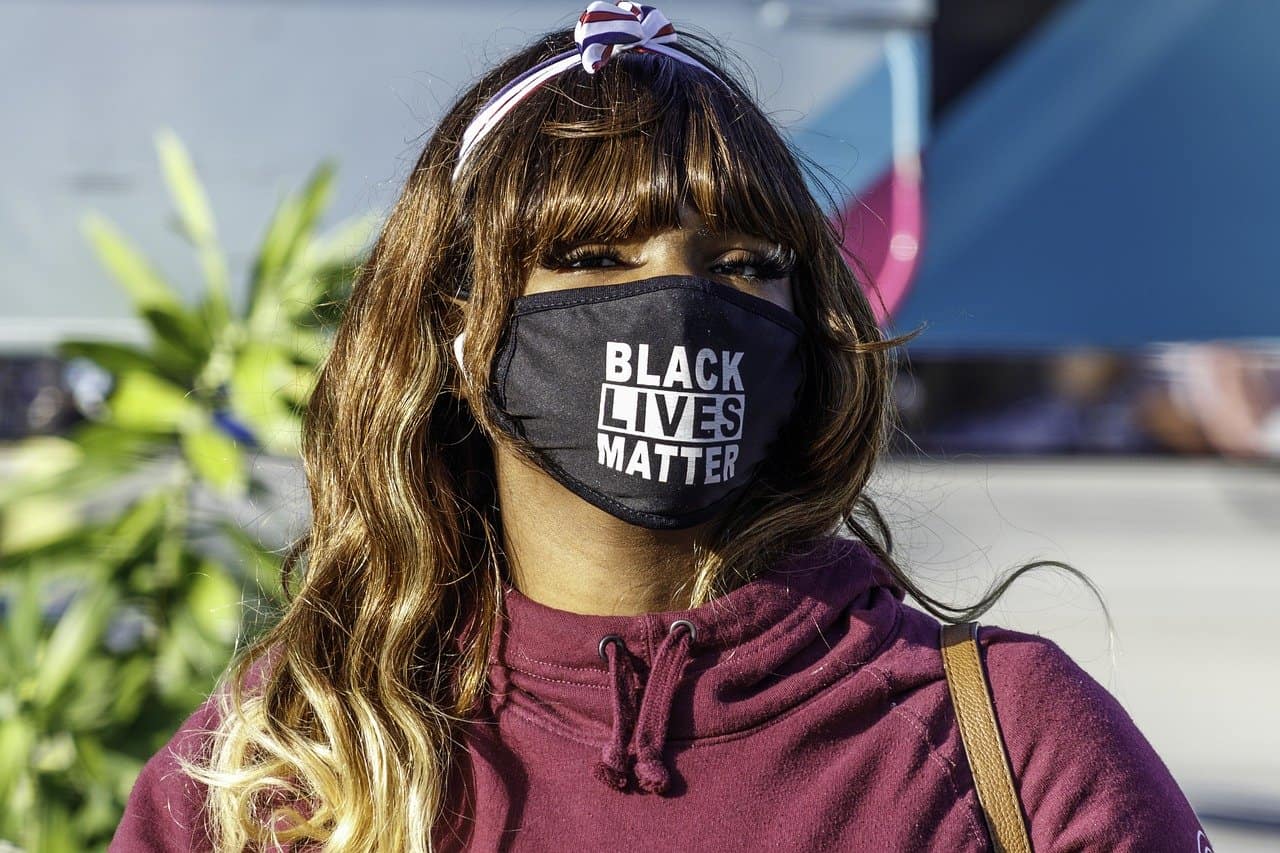
Tascha Shahriari-Parsa is a government lawyer enforcing workers’ rights laws. He clerked on the Supreme Court of California after graduating from Harvard Law School in 2024. His writing on this blog reflects his personal views only.
Three cases involving the right of workers to wear Black Lives Matter insignia at work could lead to a change in how the Board interprets Section 7 of the NLRA. The cases involved Whole Foods, Home Depot and Kroger, all of whom have been accused of retaliating against workers for refusing to remove Black Lives Matter apparel at work, such as BLM face masks, after the protests last summer following the murder of George Floyd. In a memo on March 31 of this year, Acting General Counsel of the NLRB Peter Ohr suggested that the phrase “for the purpose of . . . mutual aid or protection”—one of the kinds of protected concerted activity under the act—should be interpreted as protecting “employee’s political and social justice advocacy when the subject matter has a direct nexus to employees’ ‘interests as employees.’” The memo went on to note that the NLRB’s Division of Advice has “concluded that discussions concerning . . . racial discrimination may be inherently concerted.” A memo by general counsel Jennifer Abruzzo in August of this year also suggested that she is interested in cases that concern the Board’s interpretation of the “mutual aid or protection” clause.
If Board prosecutors can demonstrate that the workers wore the BLM masks to protest not just racial discrimination in general but also racial discrimination or harassment specifically at their workplaces—in other words, an issue that is clearly under the employer’s control—then they will have a much stronger case without needing a significant shift in Board precedent to win the case. However, the Board could also find that wearing BLM signs at work is inherently concerted given that even broad, societal-level concerns about racial discrimination and inequality do not bear “so attenuated” a relationship to employee’s interests as employees—the workplace has historically been one of the key cites of struggle for racial justice. Further, under an interpretation that broader social justice advocacy is not protected, workers may be disincentivized from participating in concerted activity like wearing BLM masks, even when such activity is directed at their employer, because it may nonetheless be difficult to establish a clear nexus. Discussions about racial justice writ large can also prompt discussions about racial justice in the workplace, the same way that employees discussing unionization in general or at other workplaces could be a step towards workers forming a union at their own workplace. Finding that such discussions are not protected could thus stifle workers’ efforts to address issues of discrimination and harassment in the workplace.
Yesterday, Congress approved the Uyghur Forced Labor Prevention Act that bans imports from China by businesses who cannot prove that the imports were produced without forced labor. Human rights groups have called for the U.S. government and U.S. companies to end its complicity in forced labor in the Uyghur region. According to a coalition of 410 organizations that includes the AFL-CIO, over 17 global industries and 1 in 5 cotton garments are implicated in forced labor from the region. In a press release, the coalition wrote that it “applaud[s] the House and Senate for passing the Uyghur Forced Labor Prevention Act, despite opposition from many of the nation’s most powerful corporations.” Cathy Feingold, International Director of the AFL-CIO, wrote that “[t]he bill, now headed to President Biden’s desk, significantly improves our ability to enforce the long-standing ban on the importation of forced-labor made goods into the United States. The bill is also an important step in leveling the playing field so the United States can establish a domestic solar supply chain, which is critical to success in the clean energy economy.”
After workers at the D.C. independent bookstore Politics and Prose launched a union drive earlier this month, yesterday, the bookstore’s owners Bradley Graham and Lissa Muscatine hired the Jones Day law firm, infamously known for its aggressive union busting tactics as well as for representing Donald Trump in efforts to overturn the results of the 2020 Election. “These are not the actions we have come to expect from Politics & Prose, nor do they reflect the values of our mission statement,” the Politics & Prose workers union wrote in a statement. “However, we are undeterred. We are forming our union. We are deeply committed to our workplace and we know unionizing is the best way for us to live out our shared values . . . .”
Today, the NLRB certified the union victory at a Starbucks store in Buffalo, the first Starbucks location to unionize. Starbucks now has a legal obligation to negotiate a collective bargaining agreement with workers at the shop.
A RealClear survey released yesterday found that 28% of voters believe unions should have “more influence”, compared to 23% who say they should have “less influence” and 31% wanting “no change.” By party, 39% of Democrats, compared to 17% of Republicans, wanted unions to have greater influence; 39% of Republicans and 10% of Democrats thought unions should be weaker. 37% of non-white working class voters, compared to 25% of white workers, favored greater power in the hands of unions.






Daily News & Commentary
Start your day with our roundup of the latest labor developments. See all
November 27
Amazon wins preliminarily injunction against New York’s private sector bargaining law; ALJs resume decisions; and the CFPB intends to make unilateral changes without bargaining.
November 26
In today’s news and commentary, NLRB lawyers urge the 3rd Circuit to follow recent district court cases that declined to enjoin Board proceedings; the percentage of unemployed Americans with a college degree reaches its highest level since tracking began in 1992; and a member of the House proposes a bill that would require secret ballot […]
November 25
In today’s news and commentary, OSHA fines Taylor Foods, Santa Fe raises their living wage, and a date is set for a Senate committee to consider Trump’s NLRB nominee. OSHA has issued an approximately $1.1 million dollar fine to Taylor Farms New Jersey, a subsidiary of Taylor Fresh Foods, after identifying repeated and serious safety […]
November 24
Labor leaders criticize tariffs; White House cancels jobs report; and student organizers launch chaperone program for noncitizens.
November 23
Workers at the Southeastern Pennsylvania Transportation Authority vote to authorize a strike; Washington State legislators consider a bill empowering public employees to bargain over workplace AI implementation; and University of California workers engage in a two-day strike.
November 21
The “Big Three” record labels make a deal with an AI music streaming startup; 30 stores join the now week-old Starbucks Workers United strike; and the Mine Safety and Health Administration draws scrutiny over a recent worker death.